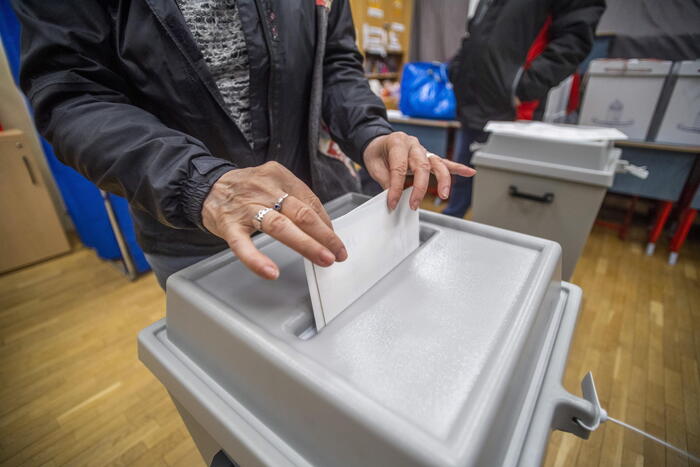Polls are open from 6 am in Hungary
, which today votes for the first political elections which, for the nationalist premier Viktor Orban, who has been triumphant for 12 years in the last three, are presented as uncertain.
His party Fidesz, accused among other things of being pro-Putinian in an electoral campaign made even more heated by the war in neighboring Ukraine, this time has to contend with an opposition that for the first time presents itself united, with an alliance, rather heterogeneous internally, between six parties, united by the desire to bring Hungary back into the channel of Europeanism, Atlanticism and liberal democracy.
The opposition nominates Peter Marki-Zay, who, while admitting that it is an uphill battle, after 12 years of "brainwashing" and given the high number of uncertain voters, yesterday, in a crowded rally in the freezing cold and sleet, predicted that the opposition alliance is facing the "gates of victory".
The polling stations close at 7 pm and the first projections on the results are expected between 11 pm and midnight.
A rather high turnout is expected, around 70%.
There are about 10,200 polling stations throughout Hungary, with 9.7 million voters.
To the latter could be added about 300,000 votes by correspondence from Hungarians residing abroad.
199 deputies are elected, 106 of which in single-member constituencies with a dry majority, 93 with the proportional system with a barrier of 5%.
On the proportional sheet, in total, there are 6 lists: in addition to Fidesz (Orban's party) and the opposition alliance United for Hungary (socialists, social democrats, liberals, greens and nationalist centrists), there is a list of the far right (Movimento della Patria), a party called the Two-Tailed Dog, a no-vax party, one funded by a billionaire from the
porn industry (Movement for the solution) and an ally of Fidesz.
Lists, the latter, which could steal some votes from the opposition alliance.
On the single-member card, there are a total of 664 candidates, 6-7 for each constituency.
To win, at least 55 out of 106 constituencies must be conquered.
There is also voting in Serbia
, where at 7 (same Italian time) the seats were opened for the three elections scheduled today at the same time: early parliamentary, presidential and administrative in 14 municipalities, including the capital Belgrade.
Big favorites for the three consultations are the outgoing president Aleksandar Vucic, who according to forecasts should win a second term already today in the first round, and his Serbian Progress Party (SNS, conservative), the majority force in the country, which all polls give the winner by a large margin both in legislative and local elections.
Opposition forces also participate in today's vote, which boycotted the latest legislations of June 2020 in protest against Vucic's 'authoritarianism'.
A last survey released a few days ago accredited the
Sns of over 53% of the votes, followed at a great distance by the main opposition cartel 'United for the victory of Serbia' at 13.7%, third the Serbian Socialist Party (SPS) of the head of parliament and former foreign minister Ivica Dacic with 10.2%.
The socialists are government allies of the SNS, and Dacic has confirmed its willingness to continue the collaboration also in the next legislature.
Four other minor and opposition parties could overcome the 3% barrier necessary for entry into the unicameral parliament of 250 seats.
There are 19 slates in the running for the legislative elections, while there are eight candidates for the office of president, three of whom are women.
The only one able to get close to Vucic is Zdravko Ponos, former army chief of staff,
candidate of the opposition cartel 'United for the victory of Serbia'.
The 6.5 million voters can vote up to 20 in more than 8,200 seats, in compliance with anti-Covid measures.
Kosovo Serbs, due to Pristina's refusal to organize elections on its territory, vote in four locations in southern Serbia.
Observers from the OSCE, the Council of Europe and the European Parliament monitored the voting operations.

